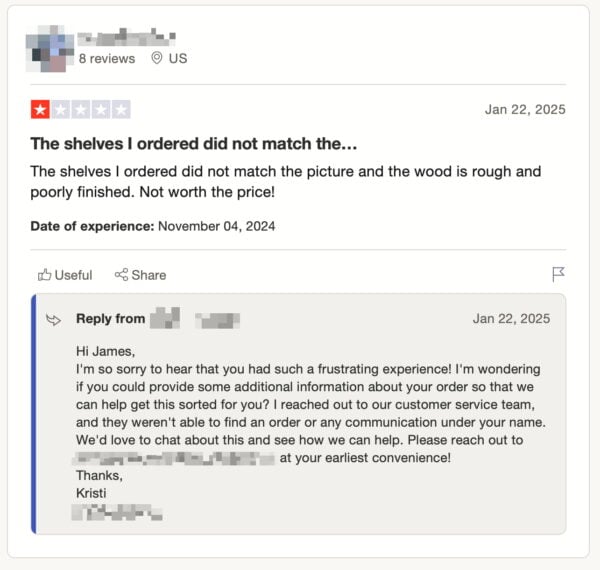What is off-page SEO?

Off-page SEO is everything you do outside of your website to help it rank better in the SERPs. On-page SEO focuses on content, site structure, and technical improvements, but off-page SEO looks at building credibility from outside. There are many ways to get there, from link building to social media to earning those coveted brand mentions.
What does off-page SEO mean to you?
With off-page SEO, you try to gain trust and credibility for yourself or your business. A big part of this strategy concerns link building, which involves getting other websites to link back to yours. Doing this shows search engines that your content is helpful and worth looking at.
Remember that it’s about the quality of links, instead of the quantity. A few high-quality links from trusted websites will help more than lots of links from low-authority ones. But links aren’t the only signals that matter.
Mentions of your brand name or domain from other websites also help build authority. Even without direct links, consistent references in articles and forums show that people are engaging with your brand.
Social media builds on that exposure. Sharing content where your audience spends time can boost visibility, which in turn can lead to more mentions, traffic, and backlinks.
Local SEO is another area of off-page SEO. Using tools like Google Business Profile and getting reviews helps your business appear in location-based searches. It’s especially useful for service businesses or companies with physical locations.
You can also experiment with creating content for different audiences to naturally attract attention. Reusing content in different formats, like videos, blog posts, or infographics, keeps your reach wide. You can also work with experts or influencers, as these can introduce your brand to new audiences and help build visibility.
Why off-page SEO matters for your site
Search engines want searchers to see trustworthy content. With off-page SEO, you can prove your site is dependable, and the quickest way to do this is when others refer to or recommend it. Good links from strong websites act like references, building confidence in your content’s value.
Even unlinked brand mentions help. When your name keeps coming up across the web, algorithms pick up on it. A strong digital presence makes a difference, whether that’s engaging with others online, through media coverage, partnerships, or content sharing.
While not directly tied to rankings, increasing your online visibility can lead to more searches, shares, and links, which can lead to increased traffic.
All these efforts support the broader goal of demonstrating that your website is run by real people with knowledge and experience. They help search engines judge how much they can rely on your content.
Link building is a big part of off-page SEO
Links from other websites tell search engines that your content is worth showing. That’s why link building is one of the key parts of off-page SEO, but not every link is equal.
Search engines find links from high-authority, topic-relevant sites more important. Getting those kinds of links usually means creating content that people want to reference, such as guides, studies, or tools.
Outreach plays a role, too. You can connect with other websites, offer guest posts, or share original insights. Over time, this builds relationships and can lead to higher-quality backlinks.
PR and content marketing also help, whether you contribute expert opinions to news outlets or create something worth citing. It’s more effective than mass emailing or buying links, the latter of which you shouldn’t do anyway.
Part of your job should be managing your existing links. SEO tools such as Ahrefs and Semrush can monitor broken or lost links and help fix or replace them.
If you are successful, link building can be more than just a tactic. It can show that others recognize your site as trustworthy, and that recognition, measured through linking, can improve rankings and drive traffic.
Social media’s impact
Social media doesn’t directly affect ranking, but it helps people discover and share your content. That kind of exposure can lead to links, searches, and increased brand familiarity.
Platforms like LinkedIn, X, Reddit, and Instagram let you speak to your audience and encourage interaction. When people find value in what you publish, they tend to share it or come back to it.
In time, these interactions build brand recognition. While this might not have a clear SEO metric attached, it does support and improve your visibility. Collaborating with influencers expands your audience even more. If they share something you’ve created, it can get picked up and linked to by others.
Video is playing an increasingly important role in this. Research from BrightLocal shows that many U.S. consumers are drawn to video content directly from businesses discussing their products or services. Over a third of consumers prefer this type of video, even more than those shared by friends, influencers, or typical social media reviewers. Additionally, 31% of individuals find value in watching videos from regular social media users.
Use insights from these platforms to spot what your audience cares about. That helps shape better content, which can trigger organic shares and mentions.
Local SEO as an off-page SEO strategy
For locally oriented businesses, off-page SEO means being easy to find and well-reviewed locally. Start with accurate business info across online directories, so make sure that your name, address, and phone number (NAP) are consistent. Search engines use this to match your business to search results.
Your Google Business Profile needs regular attention, so photos, updates, and timely responses to reviews all help. In that same BrightLocal research, 89% of respondents say they expect merchants and business owners to reply to all types of reviews.
Encourage satisfied customers to leave public reviews. New reviews show search engines and potential visitors that your business stays active and involved. A complete, active listing stands out to local customers and improves your chances of appearing in map results.
Try building links from other local businesses or organizations. These carry weight in local SEO. Sponsoring events or working with local publications can lead to mentions and coverage.
Being visible in your area is not just about what local content you have on your site, but also about how your local audience views your business online.

Expertise and trust
With off-page SEO, you have many opportunities to show your expertise. Sharing your knowledge can build trust, which in itself can create useful input for search engines.
Guest posting on reputable websites reaches people already interested in what you have to say. If those sites link back, it’s a plus for SEO, except when shady things happen, of course.
You can also take part in forums and Q&A sites. Offering useful, relevant insights gets your name out and sometimes leads to mentions from others who find your content helpful.
Podcasts, webinars, and speaking events work the same way. Participating in discussions in your space helps establish expertise and can result in new traffic or backlinks from media coverage or event promotions.
Collaborating with other professionals through research or shared content introduces your work to their audience and can lead to more recognition and links over time.
You shouldn’t just focus on creating more content, but try to actively lead in your field. If your business is perceived as the go-to place, this builds trust with both your audience and search engines.
How off-page SEO impacts AI-driven search
Search is changing quicker than ever. Beyond the classic search results, people are now using AI tools like Google’s AI Overviews and AI Mode, Perplexity, Microsoft Copilot, and chat assistants like ChatGPT to find answers. These tools use large language models (LLMs) to pull information from across the web, and off-page SEO plays a role in how your content shows up.
When your brand or website appears on high-quality, trusted sites, it increases the chances that AI tools recognize your content as reliable. Structured citations, strong backlinks, and consistent brand mentions all help LLMs “see” your site as a good source. This can lead to your content influencing or being featured in AI-generated summaries and answers.
Authority, trust, and topic alignment are all important. The more your content is referenced or quoted by reputable sources, the more likely it is to appear in conversational search results or be used to answer common questions. Find out how to optimize content for AI LLM comprehension using Yoast’s tools.
Off-page SEO now supports not just link-driven visibility, but also discoverability in AI search and chat tools. It helps improve your overall presence, so it doesn’t matter whether someone uses Google, social media, or an AI chatbot to find information about you.
Off-page SEO helps widen the scope
Off-page SEO works together with on-page work to strengthen your website’s reputation across the web. First, it helps your users, but it also helps search engines and AI tools recognize your content as trustworthy and relevant.
Whether you’re earning backlinks, encouraging brand mentions, engaging on social platforms, or building local visibility, each off-page signal adds to your authority. Collaborations, reviews, and expert participation show real experience behind your site.
These strategies now also influence how content surfaces in AI-generated results. That means off-page SEO doesn’t just support traditional rankings, but it also helps your brand stay discoverable in new, AI-powered ways.
The more consistent, trusted, and present your brand is across the web, the more likely it is to show up wherever people are searching, even if they’re not using a classic search engine. Build trust, stay visible, and let your off-page efforts work across search formats, now and into the future.

